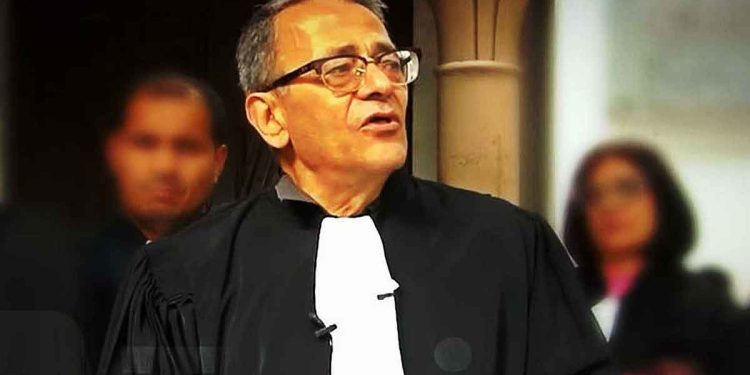A Tunisian court on Thursday sentenced former administrative judge and lawyer Ahmed Souab to five years in prison, placing him under administrative supervision for a further three years, following public statements in which he sharply criticised the performance of the judiciary and the conduct of trials in what is known as the “Conspiracy Against State Security” case.
Souab is regarded as one of the most prominent critics of the political and judicial course Tunisia has taken since 2021. He was among the lawyers who defended several opposition leaders handed lengthy prison sentences. He was arrested earlier this year after describing those court sessions as a “farce” and stating that “knives are held to the judges’ throats”—a figurative reference to the pressures faced by the judicial establishment.
The Court of Appeal’s Indictment Division referred Souab’s case to the Criminal Chamber specialised in terrorism cases, after concluding the investigation based on provisions of the Anti-Terrorism and Anti-Money Laundering Act, the Telecommunications Code, the Penal Code, and Decree No. 54 of 2022 concerning the fight against crimes related to information and communication systems.
This case forms part of an accelerating trend of using security-related legislation to pursue public expression. Souab’s statements were brought under the scope of counterterrorism and cybercrime laws, which are texts originally designed to protect national security from armed violence or organised threats, not to prosecute political or professional criticism.
The verdict raises serious questions about its consistency with the constitutional guarantees of freedom of opinion and expression enshrined in the Tunisian Constitution and international human rights treaties ratified by the country. The expansive interpretation of vague legal terms such as “incitement” or “insult through networks” risks criminalising critical speech and fostering a climate of self-censorship among legal professionals and journalists alike.
There are growing concerns that this ruling could set a precedent for expanding prosecutions against voices that address judicial or political affairs in sharp or satirical language, even within the bounds of legitimate professional practice.
With this verdict, Tunisia enters a new phase of debate over the fine line between freedom of expression and the protection of state institutions, in a moment that calls for vigilance, as closing this space could erode public trust in the justice system and undermine the very principle of the rule of law.


























